How did the pristine waters of Kumarakom get tarnished?
Once upon a time, the Kumarakom backwaters were a pristine network of canals, rivers, and lagoons, teeming with life and natural beauty. But over the years, this paradise began to change. As word spread of its enchanting allure, tourists flocked to Kumarakom. Houseboats and tourist vessels crisscrossed the waters, discharging waste directly into the backwaters. Plastics and other non-biodegradable materials found their way into the delicate ecosystem, disrupting its balance.
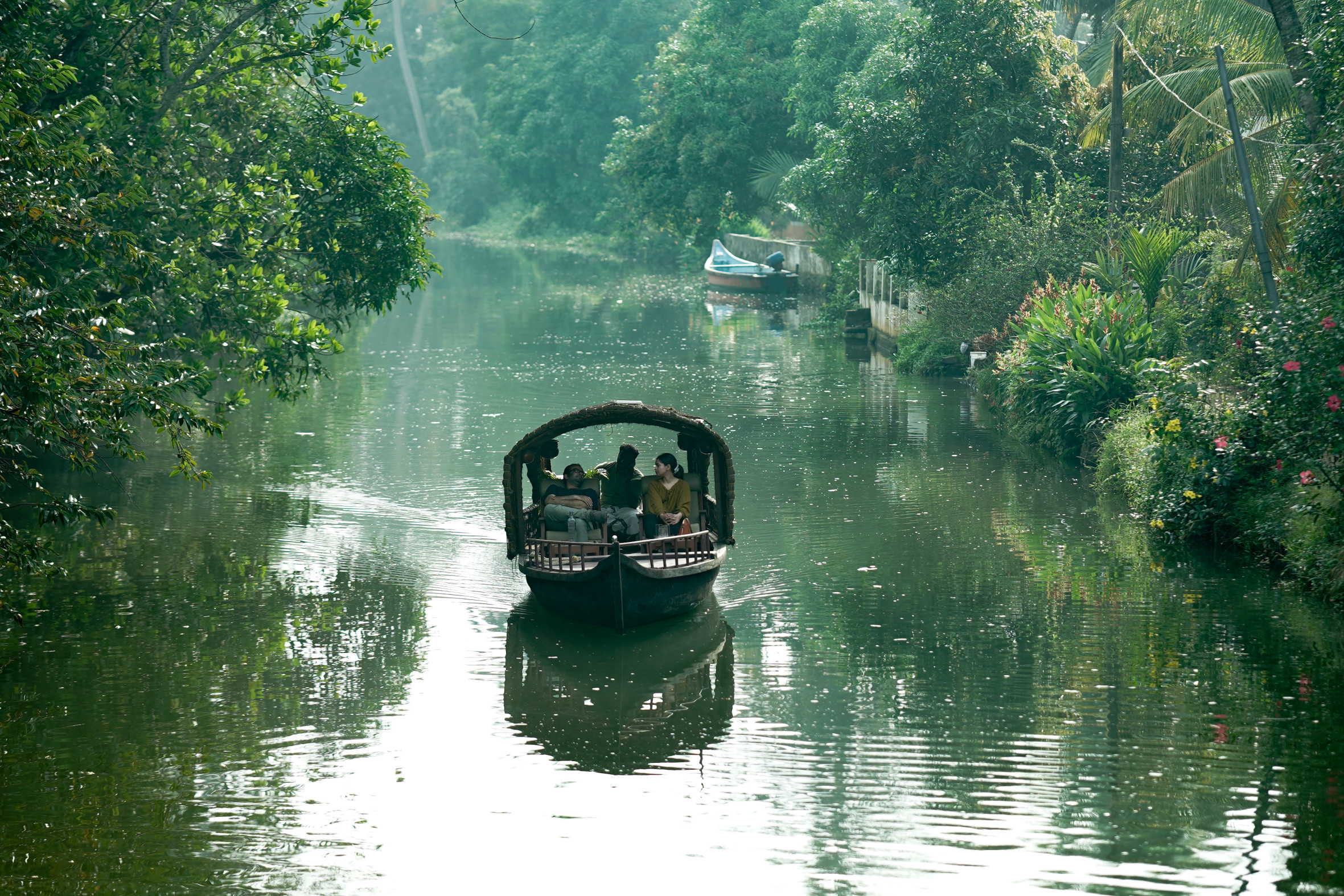
Nearby, rich agricultural lands contributed to the problem. Fertilizers and pesticides washed into the backwaters, causing eutrophication and algal blooms that depleted oxygen and harmed marine life.
In response to the tourism boom, unregulated construction of resorts and hotels destroyed natural habitats, with debris ending up in the waterways. The population increase led to more domestic waste, often dumped into the backwaters due to inadequate sanitation facilities.
Nearby industries added to the woes. Effluents from factories polluted the water further. Encroachment and land reclamation projects reduced natural wetlands, disrupting the flow and purification processes. The situation was compounded by inadequate waste management infrastructure, leading to the accumulation of garbage and pollutants in the backwaters.
Individual cleaning efforts spearheaded by Eco-warriors like Rajappan Chettan:
Rajappan Chettan, a dedicated cleaner, spent over a decade cleaning the Vembanad lake and canals in Kumarakom. He would wake up at 4 AM, using his small canoe to remove plastic waste from the lake. His efforts gained recognition, with a mention in the Prime Minister’s radio show. Rajappan Chettan’s work inspired us to contribute towards environmental preservation. Through his selfless work, the lake's pollution reduced, restoring its beauty. His example highlights the importance of responsible action to protect water bodies from becoming plastic graveyards.
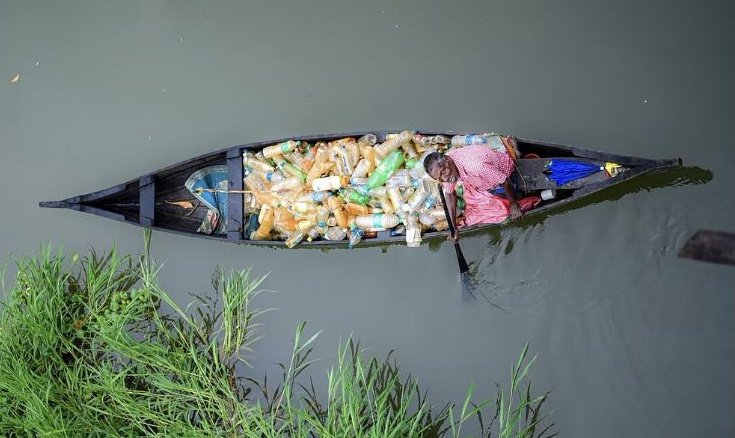
P.C: brightvibes.com
The eco warrior Rajappan Chettan’s work served as an inspiration for us all to be environmentally conscious and create a sustainable world for future generations.
Our eco-warriors Jesvanth and Sanu had been positively bringing in efforts to maintain clean and green Kumarakom Backwaters with their relentless efforts. Let’s share how they are doing this:
Our efforts towards clean and green backwaters of Kumarakom:
Individual Clean-Up drives by Sanu, Jesvanth and Vimal:
Whenever our eco warriors Sanu, Jesvanth or Vimal take up the canoe cruises for our guests, they are up on the mission of collecting the plastic water bottles from the Backwaters which had been lying irresponsibly disposed of. Once, we could remember seeing quite a few plastic bottles lying there in our canoe.
Leading Awareness Campaigns:
On the local scale, there are efforts taken up by the local community to raise awareness about maintaining a clean backwaters environment. Jesvanth and Sanu regularly participate in these awareness campaigns and speak about the importance of cleaning the water bodies of the Backwaters and how the clean waters can be a safe haven for the fishes to which our village economy sincerely depends on.
Eco-Friendly Tourism Practices:
Promoting sustainable tourism is a key focus for us. We work with tourism operators to implement eco-friendly practices. We have started the use of solar-powered boats, banned single-use plastics, and ensured that all tour operators adhere to strict waste disposal guidelines.
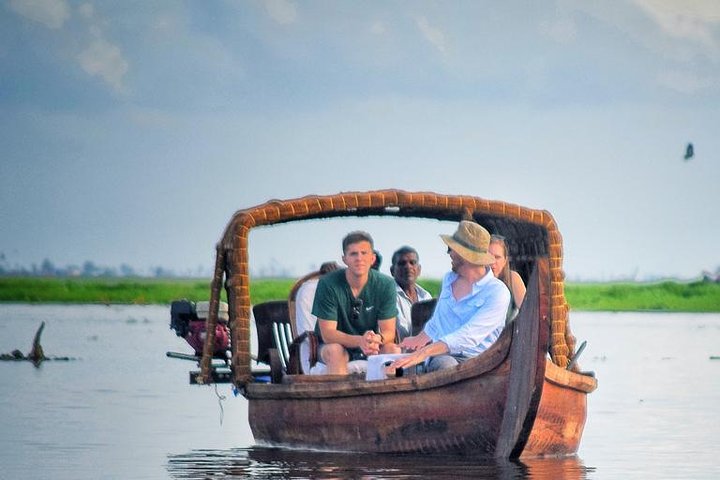
Promoting Eco-Friendly Products:
We encourage the local markets to stock and sell eco-friendly products. This includes biodegradable utensils, reusable bags, and natural cleaning products. By promoting these products, we hope to reduce the overall environmental footprint of the local population and tourists.
The efforts taken by our Local Community towards clean Kumarakom Backwaters:
Introduction of Waste Management Systems:
Our village community and the local authorities have established better waste management systems. This includes setting up waste collection points, segregating waste at the source, and ensuring proper disposal and recycling of waste materials. They have also pushed for the installation of bio-toilets on houseboats to prevent sewage from being discharged into the backwaters.
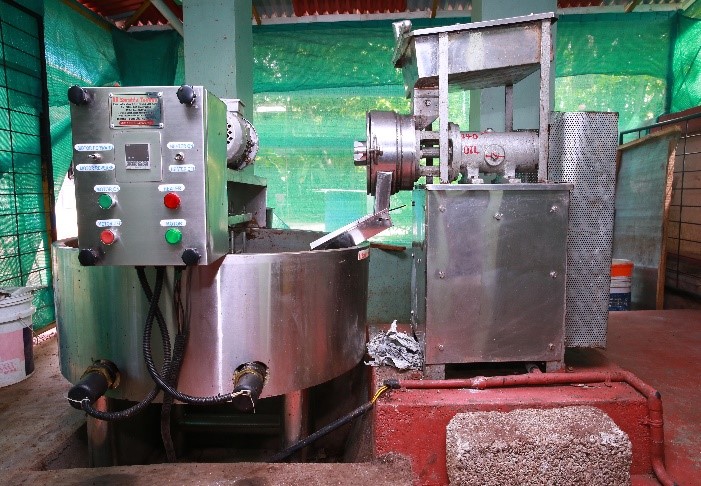
P.C: kau.in
Rehabilitation of Wetlands:
Efforts are underway to rehabilitate and restore natural wetlands that act as filters for pollutants. This involves replanting native vegetation, removing invasive species, and creating buffer zones to protect the wetlands from encroachment. Restoring these wetlands helps in naturally purifying the water and providing habitats for local wildlife.
Regulating Agricultural Runoff:
Eco-warriors are working with local farmers to reduce agricultural runoff. This includes promoting the use of organic farming practices, reducing the use of chemical fertilizers and pesticides, and creating buffer zones along the edges of farms to capture runoff before it enters the backwaters. Training programs and incentives are provided to farmers to adopt these sustainable practices.
Monitoring and Enforcement:
To ensure compliance with environmental regulations, local eco-warriors assist in monitoring the backwaters for illegal activities. They report violations to authorities and work with law enforcement to ensure that regulations are enforced. This includes monitoring industrial discharge, illegal dumping, and encroachment activities.
Community-Based Fish Farming:
Sustainable fish farming practices are encouraged to reduce the pressure on natural fish populations. Eco-warriors help set up community-based fish farming projects that use eco-friendly methods, such as avoiding overstocking and using natural feed. These projects provide an alternative source of income for local fishermen while ensuring the health of the backwater ecosystem.
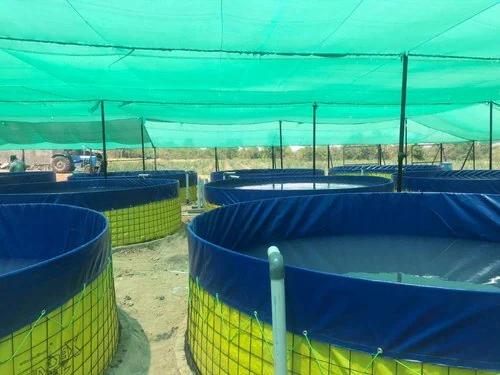
The multifaceted approach of the local eco-warriors and the local community in Kumarakom is a testament to the power of collective action and sustainable practices. Their ongoing efforts are crucial in preserving the Kumarakom backwaters, ensuring that this vital ecological zone remains a thriving habitat for wildlife and a source of beauty and sustenance for future generations. The restoration of the backwaters is not just an environmental imperative but a cultural and economic one, embodying the spirit of Kerala’s rich heritage and commitment to a sustainable future.
Would you like to join our team to help revive the serenity of the Kumarakom Backwaters? Join us here.

